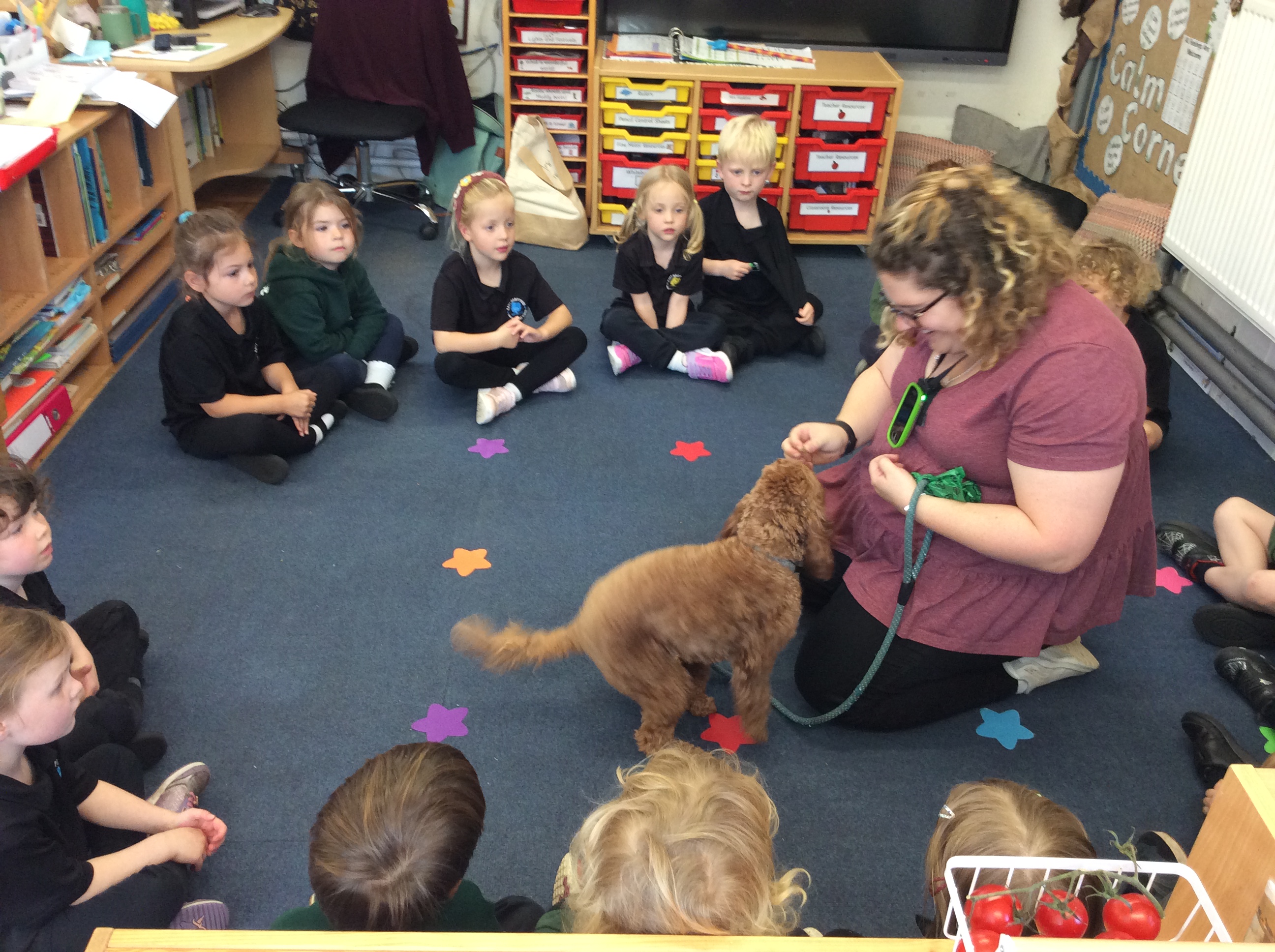Our School Therapy Dog
Meet Indie!

Indie is the much loved dog of Mrs Guthrie-Knight and her family. Born on 16th January 2023, she joined their family at just eight weeks old and has been bringing joy ever since.
Both of Indie’s parents are cockapoos, known for their wonderful temperaments and Indie is no exception! She’s incredibly friendly, loving, and sociable, especially enjoying her time spent with children both in and out of school.
Whilst at school, Indie provides a wonderful support to the children and has an amazing ability to sense when someone needs a little extra comfort. She loves listening to the children read and especially enjoys when they teach her new tricks. At the moment, we are working on getting her to offer her left and right paw!
The Purpose of Introducing a School Dog
Having a school dog offers numerous educational and emotional benefits for both children and staff. It helps foster a greater understanding of responsibility, cultivates empathy, and develops nurturing skills—all through positive interactions with a suitable dog, such as Indie. Additionally, both children and adults often find great joy in spending time with a dog.
Benefits of having a School Dog
Pupil Wellbeing
- Children can empathise with animals in ways that might be challenging with other adults, supporting their emotional health and wellbeing.
- Spending time with a dog can boost self-esteem and lift overall mood.
- Dogs teach compassion and respect for living beings, while also helping to reduce anxiety.
- Enhances behaviour and concentration.
- Known to increase dopamine and serotonin levels, which improve happiness levels.
Social
- A dog serves as a positive shared topic for conversation.
- Promotes a sense of responsibility.
- Enhances well-being and increases social interaction.
- Aids in the development of collaborative play.
- Instructs children on how to nurture and respect animals.
Academic
- Having a school dog can boost memory and problem-solving skills.
- Research shows that school dogs can enhance pupils’ attendance as they are keen to interact and see the dog.
- Inspires children to engage more in thinking and learning, as many children naturally possess a strong interest in, enthusiasm for, and enjoyment of animals.
- Reading to dogs has been shown to assist children in developing literacy skills and building confidence, thanks to the calming influence of the dog's presence and the non-judgmental nature of dogs listening to children read. This supportive atmosphere fosters children's love for reading and gives them the assurance to read aloud.
- It is recognised that interacting with a school dog may not be suitable for every child, particularly those with allergies or a fear of dogs. Additionally, we acknowledge that some parents may prefer their child to avoid interaction with the school dog.
Please click the following link to read our school dog policy. If you have any further questions, please contact the school office.


